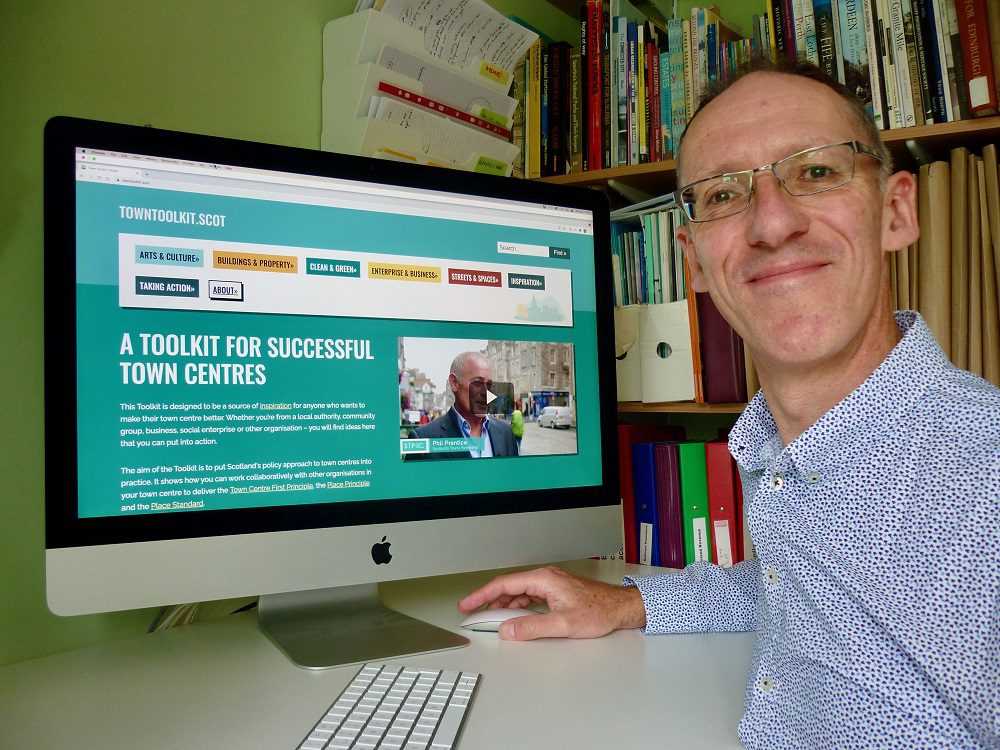Whats On 19 November 2021
November 17, 2021New Scottish consortium involving AGS Airports Ltd launched to unlock low-level wind power
November 18, 2021Collaboration and commitment credited with making town stronger highlighted as a trailblazer for other communities to follow

The collective will which has helped power the transformation of Paisley has been hailed as an inspiration for other Scottish towns to follow.
Work to improve the community is highlighted in a recently-launched website designed to empower and inspire those determined to make the nation’s towns stronger and more attractive.
Scotland’s Towns Partnership’s (STP) Town Toolkit aims to help local authorities, community groups, social enterprises and businesses take action to build better communities. More than 200 people and organisations contributed to the Toolkit, whose development was supported by the Scottish Government.
And Paisley will be among the communities highlighted as a prime example of success as the toolkit is discussed at the Scotland’s Towns Conference next Friday (November 26).
Nick Wright, a Johnstone-based town planner who developed the toolkit for STP, will speak of the town’s achievements.
He said: “Paisley may have had its struggles in recent decades, but now the town is leading the way in showing what collaboration, commitment and a strategic approach can achieve.”
Among the initiatives highlighted are the “inspirational” 2030 vision for the town centre, which shows how Paisley can be redesigned to re-energise the high street, mapping out how that can be achieved.
The £100m investment in the town centre – spearheaded by Renfrewshire Council – is also highlighted, with work including the transformation of Paisley Museum, revamp of Paisley Town Hall and a new library, learning and cultural hub on the High Street.
On the lessons that other communities can learn, Mr Wright added: “The council may be taking a leading role in Paisley’s transformation, but it knows it doesn’t have the power or resources to do everything.
“Much more impact can be achieved by helping everyone’s projects and initiatives to materialise. So a crucial part of the council’s role has been to support everyone involved in the town centre to work together, from the local youth theatre to the chamber of commerce.
“Collaboration helps individual projects come to fruition – such as the proposal for a community-owned cinema on the High Street to reconnect socially isolated individuals of all ages, circumstances and abilities, making cinema accessible for all.”
Mr Wright said that the toolkit is about sharing that wealth of experience from across the country – showing that communities can do it because it’s been done before.
While inspiring communities and groups, it is also hoped that the toolkit will prove useful for local authority officials working in planning, community development, leisure, transport and the economy when considering developments in their region, as well as for politicians at every level.
For more information, go to www.towntoolkit.scot. Details about how to join in the discussions at Scotland’s Towns Conference, which runs from November 22 to 26, can be found at www.scotlandstowns.org/scotlands_towns_conference_2021.



